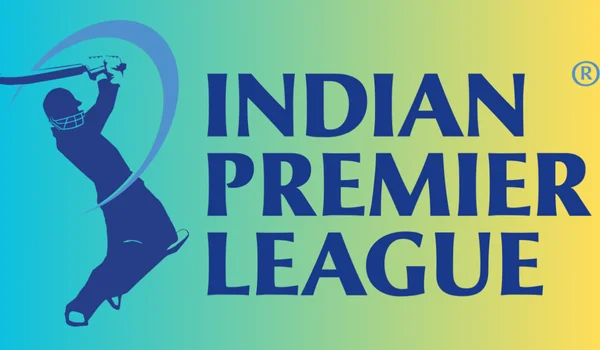The Indian Premier League (IPL) is far more than a cricket tournament—it’s a massive business ecosystem. For those considering getting into sports-franchising, owning or co-owning an IPL franchise is often seen as the apex of the game. In this blog post, I will walk you through the franchise cost, the model, return on investment (ROI) expectations, the eligibility/criteria, and steps to apply (or participate) in owning an IPL franchise. I’ll blend official data with industry insight so you get a realistic view.
Understanding the Model: What Does Owning an IPL Franchise Mean?
An IPL franchise means acquiring the rights (often via auction) to operate a team in the Indian Premier League under licensing from the Board of Control for Cricket in India (BCCI). Franchise owners are responsible for team operations, branding, players, sponsorships, logistics, marketing, stadium/hospitality (either directly or via partners) and will receive revenues from central pools (broadcast rights, league sponsorships) as well as local revenues (ticketing, merchandise, hospitality etc). As noted in a breakdown: “central revenue pool + sponsorship + ticket sales + merchandise + local business model” are key.
Important to note: This is not a typical “franchise” you pay a small fee and operate under a brand as in retail; this is massive capital investment, corporate level ownership, and high risk/high reward.
Franchise Cost & What the Investments Look Like

Entry / Ownership Cost
- In the IPL’s recent expansion, new teams came with astronomical entry costs. For example: The expansion franchises in 2021 – Lucknow Super Giants reportedly paid ~ ₹7,090 crore.
- According to reports for the women’s IPL franchise auction, the base price was set at ₹400 crore and expected final bids between ₹1,000–1,500 crore or more.
- The “franchise cost” therefore is not a modest one-time payment—it is a huge investment often involving multi-crore bids, multi-year payment obligations. The economics demand serious funds.
Annual Running Costs
- Beyond the entry cost you face annual operating expenses: player salaries (which are huge), coaching/support staff, travel, accommodation, stadium or venue related costs, logistics, brand marketing. One article says “cost per season can quickly rise to ₹150-200 crore for a franchise.”
- Also, franchises pay a portion of revenue back to the BCCI: e.g., via a “franchise fee” or revenue-share. One economic piece notes that franchises are required to pay ~20 % of their revenue to the BCCI.
Summary: So what to expect?
- To own an IPL franchise: entry cost in hundreds to thousands of crores.
- To operate it properly: annual expenses in tens to hundreds of crores.
- Returns hinge on large revenues (broadcast, sponsorships, merchandise, gating) and strong brand value.
ROI: What Can You Expect and What Influences It?
Because the investment is massive, ROI (return on investment) in an IPL franchise scenario depends on many moving parts:
Revenue streams
- Central revenue (from media/broadcast rights) – according to an article, the IPL media rights for 2023–2027 were sold for ₹48,390 crore and franchises receive a share (approx 45%) of that.
- Sponsorships and merchandising – major sponsors pay large sums to franchises, branded merchandise sells, hospitality revenues from match-day events.
- Ticket sales, local business activations – home-match ticket revenues, stadium hospitality, in-venue activations, fan engagement.
Costs & Risks
- High player salary commitments (one article: player remuneration eats up ~40% of a franchise’s revenues).
- Operational & logistic costs (travel, training, match-day operations).
- The fact that brand value is huge but so is competition; also revenues vary by season, team performance, location, fan engagement.
Estimating Payback
Suppose you invest heavily (entry + operating costs). If your franchise can build a strong brand, secure big sponsorships, maximize stadium and fan revenue, you may realise positive returns over several years. But if costs balloon and revenue is modest (or you’re in a weaker market), payback can take many years.
Key influencing factors
- Brand strength & fan base of the franchise.
- Market size and local commercial ecosystem (metros vs smaller cities).
- Performance & team visibility (winning draws sponsor attention).
- Stadium/venue infrastructure & ability to monetize match-days.
- Ancillary business models (merchandise, licensing, digital engagement).
- Cost control (especially salary / logistics).
Bottom line: Owning an IPL franchise is potentially extremely profitable — but also extremely capital-intensive and high risk. It is not a small business investment; it’s a strategic long-term business at a large scale.
Eligibility Criteria & What’s Needed (for Potential Buyers)
If you are considering bidding for an IPL franchise (or buying an existing stake) here are some of the typical eligibility and criteria aspects:
Financial capacity
- You need demonstrable ability to pay not only the bid/entry cost (which may run into hundreds or thousands of crores) but also annual operating expenses.
- You should have a strong balance sheet or access to corporate capital/investment funds.
Corporate structure & governance
- Usually the bidder must register a corporate entity (in India) as per BCCI requirements.
- Clean legal record, audited financials, transparency.
- Governance mechanisms (board, audit, compliance) must be in place.
Market capability & plan
- A credible business plan for how the franchise will be managed (team, marketing, fan engagement, commercial partnerships).
- Stadium/venue arrangement in your city (often a key operational requirement).
- Ability to engage with sponsors, media, local ecosystem.
Adherence to league rules
- Bidding process compliance (for new franchises) via the BCCI’s tender/auction.
- Commitments to operations, performance, team composition, player participation under league rules.
- Revenue-sharing agreements, and compliance with industry standards (fair play, licensing, etc).
Reputation & long-term commitment
- Ownership with long-term vision (sports franchises are typically multi-decade ventures).
- Ability to sustain during lean years and to build brand equity.
If you meet the above, you may qualify to bid or acquire an IPL franchise stake — but the entry cost remains the main barrier.
Steps to Apply / Acquire an IPL Franchise
Here is a step-by-step guide (for potential new franchise or stakeholder entry) keeping in mind what typically happens:
Step 1: Monitor BCCI / IPL Expansion Announcements
Keep watch for announcements from the BCCI for new franchise tenders or auctions. These will detail cities, base price, bidding terms, timelines. For example the women’s IPL base price announcement.
Step 2: Assemble Financial & Business Team
You need to assemble a team: legal advisors, financial advisors, sports operations consultants, marketing team. Prepare your financials, investment plan, business model, stadium/venue plan for your city.
Step 3: Prepare Bid / Submission
Download and study the tender document. Prepare your bid, secure required bid guarantee, prepare your financial commitments (entry cost, payment schedule). Submit within timelines.
Step 4: Win Franchise / Acquire Stake
If your bid is successful, you sign the franchise agreement with BCCI/league. If acquiring an existing franchise, you negotiate with current owners for stake purchase and get league approval.
Step 5: Operational Setup
Post award: Set up team operations (hiring players/coaches), brand build-up, sponsor acquisition, stadium/venue operations, marketing launch, fan engagement. Also compliance: revenue-sharing, league rules, auditing.
Step 6: Launch & Season Preparation
Prepare for upcoming season: team launch, marketing, ticketing, merchandise, sponsors, venue readiness, staff. Ensure you are operationally ready for matches.
Step 7: Ongoing Operations & Long-Term Growth
Manage each season: team performance, commercial partnerships, fan base growth, digital engagement, merchandising, hospitality. Continuously analyse costs vs revenue, build long-term brand value.
Why Consider (and Why Be Cautious)
The Opportunity
- IPL as a brand is huge, global reach, strong fan engagement; owning a franchise gives you a premium asset.
- Potential for revenue across media, sponsorships, venue operations, merchandising.
- Long-term value appreciation: franchises have grown in valuation significantly over years.
- Strategic synergies if you have business interests in media, entertainment, sports, hospitality.
The Caution
- Entry cost is extremely high—only accessible to large corporates or ultra-wealthy individuals.
- Risk: if team performs poorly, or you miss commercial opportunities, ROI may be delayed.
- Market dependency: market size, fan base and commercial ecosystem matter.
- Ongoing cost pressure: player salaries, logistics, venue costs, regulatory costs.
- Need for long-term commitment: sports franchises often require time to mature, build brand loyalty, and monetise fully.
Final Thoughts
If you are serious about getting into an IPL franchise, you are thinking big—we’re talking multi-hundreds or thousands of crores, corporate level investment, and long-term business vision. Still, the reward match could be massive: strong brand equity, high revenues, global reach, and a seat at the table of India’s biggest sports league.
However, treat it as a strategic investment not a short-term business venture. Ensure you’ve done the homework: financial modelling, team strategy, commercial partnerships, venue readiness, marketing & fan base. And always check the latest terms from the BCCI/league for specific bidding details.

Shashi Kant is the Founder and Editor of BusinessScroller.com, a leading platform for business insights, finance trends, and industry analysis. With a passion for journalism and expertise in business reporting, he curates well-researched content on market strategies, startups, and corporate success stories. His vision is to provide valuable information that empowers entrepreneurs and professionals. Under his leadership, BusinessScroller.com has grown into a trusted source for in-depth articles, customer care guides, and financial expertise.


